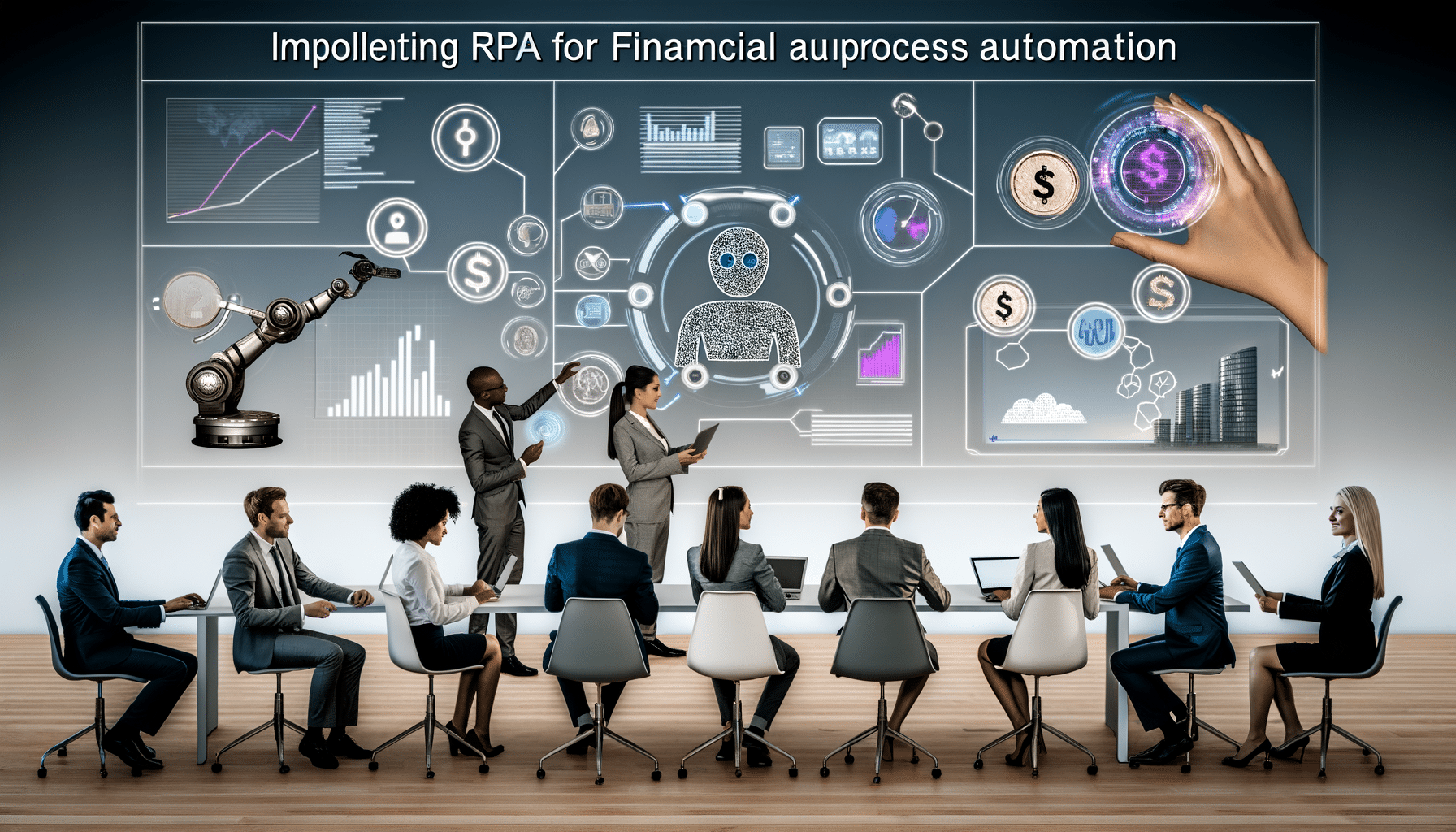Revolutionizing Financial Processes: Harnessing the Power of RPA
The financial domain stands at the very core of any organization’s operations, acting as the driving force behind strategic decisions and growth trajectories. However, the sheer volume of transactions, account reconciliations, and regulatory compliances can become overwhelming. Enter Robotic Process Automation (RPA). Today, I want to delve into how RPA reshapes financial workflows and why it’s an essential tool for your business toolkit.
Understanding the Potential of RPA in Financial Automation
For most finance professionals, RPA is not a new term. Yet, appreciating its full scope in transforming financial processes requires a closer look. RPA refers to the deployment of software robots or ‘bots’ that can execute routine administrative tasks with accuracy, speed, and efficiency—revolutionizing financial automation by performing simple to complex tasks previously handled by humans.
Integrating RPA in financial automation goes beyond just eliminating manual work; it enhances operational efficiency. Imagine a world where every repetitive financial task is carried out seamlessly by a digital assistant, allowing financial teams to focus on strategic decision-making.
The Dynamics of RPA in Financial Operations
RPA’s influence covers an extensive range of financial activities:
1. Streamlining Transactions
Consider the time-consuming nature of processing transactions. With RPA, repetitive transaction entries are automated, swiftly handled with minimal errors. It’s a game-changer for ensuring swift processing and accurate bookkeeping.
2. Enhanced Accuracy in Reconciliation
Reconciliation tasks can be mundane but critical. RPA solutions excel in matching transaction data across ledgers, identifying discrepancies with speed and precision. This technological prowess not only saves valuable time but also mitigates the risk of financial discrepancies.
3. Compliance Made Simple
Keeping up with regulatory changes is often a daunting responsibility. RPA significantly aids compliance management by automating the capture and reporting of critical data, ensuring adherence to financial regulations and industry standards effortlessly.
4. Efficient Reporting and Analysis
RPA is adept at extracting and processing data from various sources, generating reports essential for strategic analysis. As someone who’s navigated the intricate nuances of entrepreneurship, leveraging these reports can provide critical insights, aiding in data-driven decision-making.
Transformative Benefits of RPA in Financial Workflows
By acknowledging the capabilities of RPA within financial domains, several transformative benefits emerge:
Bringing RecordsKeeper.AI into the Picture
My journey with RecordsKeeper.AI has further illuminated the potential of automation. Our platform’s integration of Blockchain and AI, much like RPA in financial processes, ensures secure, efficient record management. In the same spirit, adopting RPA paves the path to enhanced security and compliance, with its ability to handle big data without compromising integrity or reliability.
I invite you to contemplate an RPA integration not just as a tactical maneuver, but as a strategic choice that aligns with the modern era’s ethos of digital transformation and smarter workflows.
Getting Started with RPA in Your Financial Processes
Initiating the journey with RPA requires several calculated steps. It’s imperative to pinpoint the financial processes that are most suited for automation. Start small—perhaps with invoice processing or payroll management—and expand scopes as results prove encouraging.
Choosing the right technology partner is equally vital. Look for platforms offering scalability, support, and an intuitive interface to ensure smooth adoption. As an entrepreneur who has seen the profound impact of technology on traditional processes, I assure you that the right partnership is fundamental to success.
Conclusion: The Road Ahead with RPA
As I reflect on the evolution of financial processes, the role of RPA remains paramount. It’s not merely about embracing technology—it’s about driving an organizational culture that values innovation, accuracy, and forward-thinking strategies.
If you’re a financial process leader, it’s time to reassess how your teams approach financial workflows. Are they equipped for the digital age? Is time, accuracy, and cost-effectiveness a hallmark of your operations? It’s my conviction that through RPA, we can transform potential roadblocks into stepping stones, paving the way for unparalleled financial agility and success.
I encourage you to explore RPA solutions further and stay connected with me on this technological journey. Together, we’ll redefine efficiency and unleash unprecedented potential.








